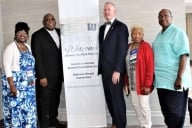You have /5 articles left.
Sign up for a free account or log in.
An especially pernicious assumption of the bootstrap fallacy is that failure is not only the individual’s fault, but also that failure only hurts the individual. In point of fact, if level of educational achievement and personal well-being are positively correlated, then it follows that educational success is tied directly to societal health and well-being. Individual failures, taken collectively, hurt us all socially, civically and economically.
Following the widely held “failure” logic, a list of learner characteristics has been compiled that purport to quantify and predict the learner’s chances of success or failure in college. The reasoning is as follows. The more of these characteristics one has, the slimmer the chances of their succeeding in college. Not surprisingly, the less a learner looks like the classic traditional student, the higher the risk attached to them. And the institutional academic model, where success is defined and determined, is assumed to be the traditional campus model.
So, income, work status, marital status, children, disabilities and other life circumstances are employed to establish a risk factor for adult learners. And, historically, those characteristics have been used to imply the relative quality of a college and to justify lower completion rates. This has engendered an attitude in too many places that says, “Gosh, we tried. We did the best we could.” And that attitude, historically, that the responsibility ultimately lies with the learner, has protected colleges from looking more deeply at their practices and policies when it came to higher-risk students and students of lower income and of color. These deeply ingrained attitudes and assumptions must change.
What if we researched and developed best practices for succeeding with these learners? What if we worked to respect, assess and validate the strengths of a person carrying these life responsibilities rather than treating them as liabilities?
In a world where soft skills such as problem solving and analytical thinking are valued in the workplace equally with the hard skills gained in school, a learner with more life experience might well come to school ahead of a learner with fewer. And when you add in the experiences of diversity and team leadership that might have been gained outside the classroom, what were previously understood to be risk factors might well become documented strengths.
There are at least three ways to organize and understand knowledge and capacity, content, cross-cutting intellectual skills and socio-emotional characteristics. Understanding the presence of those capacities in learners and building on them through respectful and structured learning experiences will turn yesterday’s perceived weaknesses into tomorrow’s academic success, employment and personal strengths.
Respect underlies the understanding that a learner’s life realities and experience are essential ingredients that fuel and sustain her learning/life journey. And in a just institution, that respect will be manifested in policies, practices and assumptions. This is not about being nice -- it is about respecting and building on the strengths that the learners bring.
Why is this important? First, it is a direct assault on systemic discrimination based on differentness. As Todd Rose emphasized in The End of Average, working with what makes us different is working with what makes us special. And ignoring or, worse, trying to dampen those characteristics is an assault on our personhood. So, in a socially just institution, vive la différence!
Second, however, it is important for a socially selfish reason. Our history of higher education has ignored and devalued talent and knowledge brought by people from outside the system’s rules and structures. We are wasting all that talent as a society. And, far from being a failing that is personal to the learner as the bootstrap fallacy suggests, this failing injures our democratic society, socially, civically and economically. We need these people and their strengths contributing to the greater good of American society. When they lose, we all lose. And when they win, we all win.
One for all, all for one -- not a bad idea.





